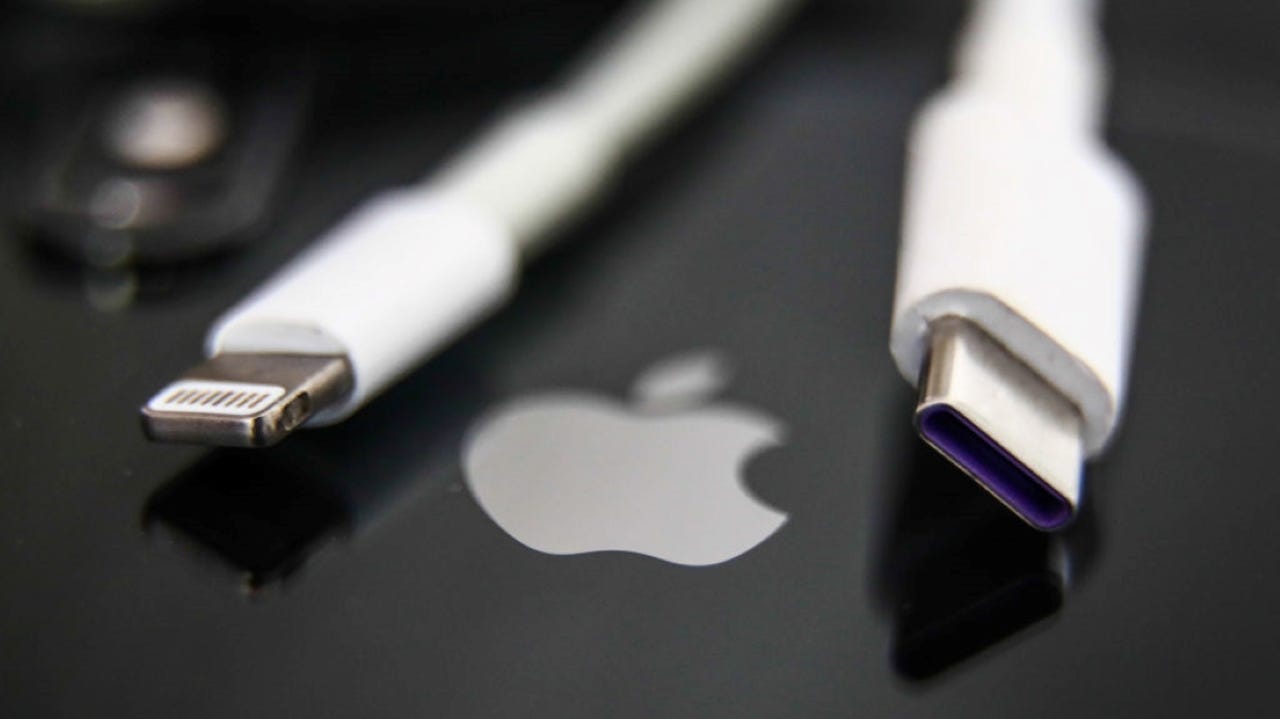Your next iPhone might need a different charging cable. Here's why


Last week, European policymakers voted in a new law that will require all smartphones, tablets, and cameras sold in the EU to come equipped with a USB-C charging. As a result, by the end of 2024, consumers in EU markets will be able to use a single charger for all of their mobile devices – moving them one step closer to banishing boxes of unruly, barely-used cables for good.
While the news is undoubtedly good for consumers, the decision will also force Apple to decide the fate of its proprietary Lightning charging cable, which is still used exclusively for a handful of Apple products: most crucially, the iPhone.
Apple
The latest iPad models ditched the Lightning cable in favour of USB-C, as did the newer MacBooks, probably in response to speculation the EU mandate would soon be approved. To stay compliant with Europe's new laws, Apple will have to make similar design changes to the iPhone, along with its Magic Mouse, Magic Keyboard and AirPods, all of which still feature a Lightning connector.
Also: Most eco-friendly smartphone? Apple vs Samsung in the race against e-waste
But would these changes be universal, or could Apple opt to design a USB-C-compliant iPhone specifically for European markets?
Jan Stryjak, associate director at Counterpoint Research, speculates that Apple will eradicate the Lightning cable and switch all future iPhone models to USB-C charging. While there's a possibility that Apple will keep the Lightning ports on future models in the US, Stryjak believes it's unlikely.
"It might continue in the US since the US is one of Apple's biggest markets," he tells ZDNET. "I would say that Apple would likely shift altogether to the USB-C platform; it'll just be too much effort to manufacture two different phones."
ZDNET has approached Apple seeking comment on the EU's ruling last week.
The device maker has consistently pushed back on moving to USB-C, arguing that having a diversity of charging systems for consumer electronics is good for innovation. This is debatable, and when you consider that old charging cables account for almost 11,000 tons of e-waste in Europe each year, moving to a universal charger could be in everyone's best interests.
Of course, if future iPhone models feature USB-C ports, European iPhone users will be left with obsolete Lightning cables. But this won't be a big deal to consumers.
"The only catch would be for those consumers who have lots of Apple products that are all Lightning-charging capable would need to buy new products anyway," says Stryjak. "But then most other products, like iPads or Macs, for example, will have USB-C charging as well."
Also: The best green phones: Sustainable and eco-friendly smartphones
Another possibility is that Apple ditches charging ports altogether: newer iPhones could come with wireless-only charging capabilities, says Strykag, leaving the traditional plug-in charging in the past. The European Commission is aware of this possibility, and will include interoperability requirements for wireless charging in the coming years.
"With the latest iPhone 14, they've gone exclusively e-sim and removed the sim tray altogether, so you never know. By this time next year, the iPhone 15 could be exclusively wireless charging," says Strykag.
Europe has passed its new rules with consumers and the environment in mind. According to the European Commission, the average consumer owns three charging cables, down from 30 ten years ago. All of these cables eventually end up in the same place: a landfill.
Although Apple has denounced a universal charging cable in the past, Stryjak thinks the company might change its mind, especially if it wants its actions to align with its sustainability initiatives.
"It would make sense for Apple to fall in line," Stryjak says. "Apple is one of the main spokespeople for sustainability. With the iPhone 14, they put a lot in terms of using recyclable materials and the iPhone trade-in program – Apple is always at the forefront of that. So, I would be very surprised if Apple didn't say, 'you know what, this is a good thing. We should follow it.'"